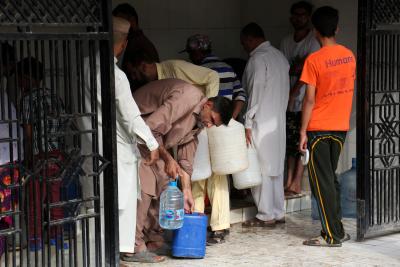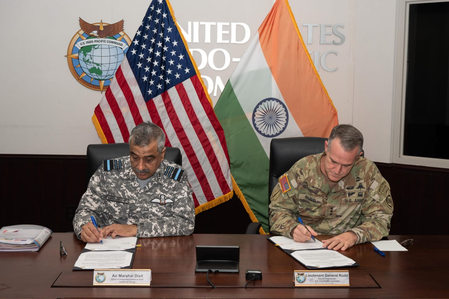
Islamabad, Nov 5 (IANS) Pakistan’s water crisis has taken a staggering human toll, forcing millions to dig deeper wells and travel long distances to fetch water, with women especially in drought-stricken regions bearing the brunt of this burden, a report said on Wednesday.
It added that children suffer from preventable diseases caused by contaminated water and poor sanitation, while urban populations grapple with daily shortages and rural communities are left neglected by the state.
“At the heart of South Asia, Pakistan is teetering on the brink of a catastrophic water crisis, one that is not born of scarcity, but of systemic mismanagement, governmental apathy, and political deflection. Despite being one of the more water-abundant nations globally, with the World Bank ranking only 35 countries ahead of it in natural water availability, Pakistan finds itself among the most water-stressed nations in the world. The situation reveals a profound and unsettling truth: Pakistan’s water crisis is the consequence of human mismanagement rather than an inevitable natural catastrophe,” a report in ‘Islam Khabar’ detailed.
According to the report, despite the severity of the crisis, Pakistan’s leadership remains indifferent, lacking a long-term water policy, an integrated drought early warning system, and meaningful investment in infrastructure. The International Water Management Institute’s political economy analysis highlighted significant shortcomings in Pakistan’s water governance, including insufficient data, outdated planning mechanisms, and the absence of coordination among the provinces.
“Media and public discourse mirror this apathy. Political talk shows dominate the airwaves, while the water crisis, arguably the most pressing issue facing the nation, receives scant attention. Policymakers appear more interested in scoring political points than in securing water for their citizens,” the report stated.
The report further emphasised that rather than addressing their own failures, Pakistan’s political leaders have increasingly engaged in blame-shifting, targeting India for suspending the Indus Waters Treaty, or Afghanistan for its proposed Kunar River dam, which they argue could affect water flow to Khyber Pakhtunkhwa. It stressed these narratives serve only to deflect attention from Pakistan’s chronic mismanagement of water resources, with external scapegoating delaying meaningful solutions and diverting the focus from the urgent need for domestic reform and accountability.
“Water, easy to weaponise in public discourse, has become a tool for deflection. Yet, the irony is stark: Islamabad and Rawalpindi, which suffer acute water shortages, rely on watersheds entirely within Pakistan. The crisis in these cities cannot be blamed on external actors, it is a product of domestic neglect,” the report noted.
–IANS
scor/as




